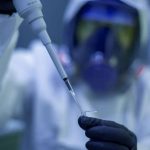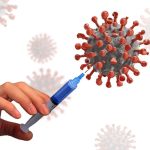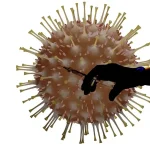As Poslovni Dnevnik writes on the 1st of May, 2020, the worldwide search for a vaccine against the new coronavirus has paralysed public health and the global economy and completely changed the way in which we live our lives, even down to the way we conduct our social relations.
Of the nearly 400 medicines and vaccines currently being tested, 5 or 6 have shown good results and have entered the clinical trials phase in humans. One, perhaps the most promising research, comes from England’s prestigious Oxford University. That’s where Croatian molecular biologist Kristijan Ramadan works.
The whole world is wondering if this is finally going to be a coronavirus vaccine that will be both reliable and safe.
”Nobody can answer that, the vaccines are stil being developed,” Ramadan told Zajedno za zdravlje/Together for health (on HRT4).
”We have about 70 different groups and vaccines that are close to reaching clinical research worldwide. We’re proud of our university for coming to the conclusion that our vaccine has shown excellent results in testing on monkeys. Six monkeys were infected with a large amount of human coronavirus and after receiving the vaccine ,they were completely healthy within 2 or 3 weeks, ie, they didn’t show any symptoms of disease development and the new coronavirus couldn’t reproduce in them. And in the control group, symptoms of coronavirus developed. This shows that a vaccine intended for human use also works in monkeys,” Ramadan explained.
The sequence between the monkey and human genome is strikingly similar.
”This should mean that this vaccine will have an even better effect in humans. The question now is how harmful the vaccine will be or how much of a benefit it will be. With each vaccine, the postulate is to do less damage and provide more benefit. This vaccine is significant because the group that developed it has already had success with the previous development of the MERS vaccine,” he said.
The development of technology has contributed to all of this.
”Until about ten years ago, and until molecular biology evolved with the help of technology, most vaccines were made by using a virus, a living virus that would have its pathogenicity reduced. Today, with new technologies, we no longer have to use the virus itself, we just use one piece of genetic material from it and insert it into another virus or another vector, the carrier of that virus,” he explained.
”This vaccine was patented at Oxford by director Adrian Hill, who has worked on it for twenty years. His idea was to develop a good malaria vaccine. He never succeeded in that, but success came from that failure when he developed a specific technology used today to develop this coronavirus vaccine,” he said.
“The knowledge that he has been accumulating over the course of 20-30 years has proven to be essential for the development of this vaccine at this time,” he concluded.
The human testing phase has begun, and every vaccine must undergo extremely stringent rigorous testing. We’ll just need to wait with our fingers crossed to find out if and when it will be ready for mass use.
Make sure to follow our dedicated coronavirus section for more.










